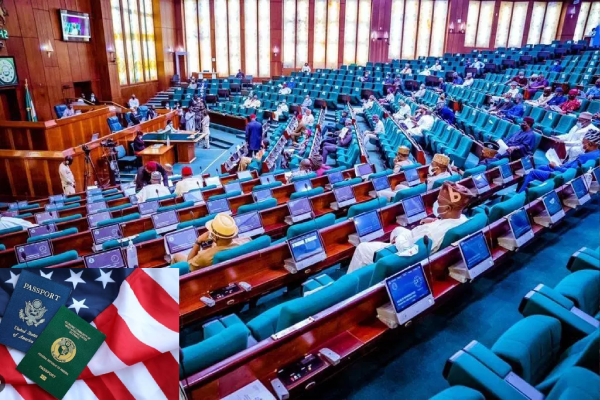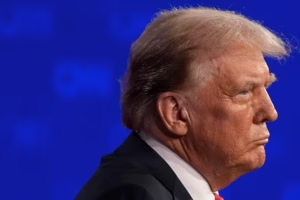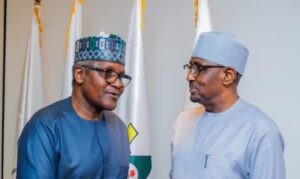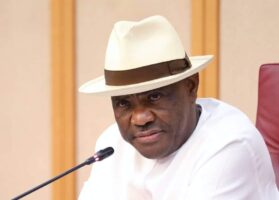The House of Representatives has criticised the US government’s recent decision to limit the validity of non-immigrant visas awarded to Nigerian citizens, condemning the move as unfair, hurtful to bilateral ties, and detrimental to millions of law-abiding Nigerians.
Under a motion of urgent public importance, Hon. Muhammad Muktar, along with co-sponsors Hon. Jesse Okey-Joe Onuakalusi, Hon. Adefiranye Ayodele Festus, Hon. Atu Chimaobi Sam, and Hon. Akiba Bassey Ekpenyong, called on the US government to immediately rescind the new policy, which reduces visa validity from a five-year multiple entry to a three-month single entry.
The lawmakers expressed concern that the July 8, 2025, policy change by the U.S. Department of State will have far-reaching consequences on business operations, academic pursuits, and family connections, particularly among members of Nigeria’s vibrant diaspora community.
“This new policy will inflict significant consequences across multiple spheres,” Muktar stated, adding that it could undermine Nigeria’s strategic objective of attracting monthly remittances of over $1 billion through diaspora bonds.
The motion emphasised the historic and strategic partnership between Nigeria and the United States, which has been built on shared democratic values, mutual respect, and robust cooperation in areas such as trade, education, and security.
The House also highlighted the vital contributions of Nigerians living in the United States, describing them as one of the most educated and productive immigrant communities in the country.
Read Also
“Nigerians in the U.S. have made enormous contributions to healthcare, technology, academia, arts, and public service. Names like Chimamanda Ngozi Adichie, Dr. Bennet Omalu, and Uzoma Asagwara are just a few among many,” the motion stated.
Additionally, lawmakers recalled the work of the Nigeria-United States Parliamentary Friendship Group (NUSPFG), which has continuously worked with U.S. institutions, members of Congress, including Rep. Chris Smith, and representatives of the State Department to promote understanding between the two countries and address security, profiling, and immigration justice issues.
The House overwhelmingly decided, mindful of the possible harm to diplomatic relations, to: Strongly condemn the U.S. government’s decision to reduce Nigerian visa status without taking into account the strategic and people-centric connection between both countries; urged the U.S. Department of State and the U.S. Embassy in Nigeria to reverse the new visa policy and return to the five-year multiple-entry visa system that was previously available to Nigerians;
Mandated the Nigeria-United States Parliamentary Friendship Group to formally communicate the House’s position to U.S. Congress, the State Department, and the Embassy in Nigeria, and intensify diplomatic efforts for fairer immigration policies;
Directed the Ministry of Foreign Affairs to engage the U.S. Government diplomatically to prevent further erosion of relations and to protect the dignity and mobility of Nigerian citizens;
Encouraged continued dialogue between Nigerian and American institutions—both governmental and non-governmental—to resolve concerns on security, human rights, and policy misperceptions.
The House urged the U.S. to adopt a more nuanced approach that reflects the realities of both nations’ long-standing cooperation and to reaffirm its commitment to people-to-people diplomacy, especially as Nigeria continues to play a vital role in regional peace and democratic consolidation in Africa.





